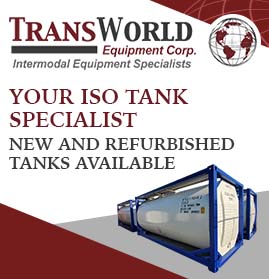FERC alters Mystic’s cost-of-service agreement
In December, FERC either set aside in part or modified its previous cost-of-service compensation decision allowing Constellation Mystic Power LLC to continue operating two gas-fired generation facilities (Mystic 8 and 9) fuelled exclusively by an affiliate, Everett Marine Terminal.
Like Mystic, Everett is owned by Exelon Generation Company LLC. Commissioner Richard Glick dissented, reiterating his belief that FERC has exceeded its jurisdiction to “bail out” the liquified natural gas (LNG) import terminal.
Originally, Mystic proposed to retire its generation units in 2018, but ISO New England Inc. (‘ISO-NE’) determined Mystic’s capacity was required to avoid reliability risks during its 2022-2023 and 2023-2024 capacity commitment periods. ISO-NE also determined the retirements threatened the financial viability of the Everett LNG station, which created an unacceptable fuel security risk for the region.
As such, ISO-NE, Mystic and Everett entered into a cost-of-service agreement (Mystic Agreement) to provide for the continued operation of Mystic 8 and 9 through May 31, 2024.
FERC accepted the Mystic Agreement in contentious proceedings that led to various rehearing requests of previously-issued rehearing orders.
In the December 21 order, however, FERC addressed the limited issues of tank congestion charges associated with Everett’s non-jurisdictional service, as well as a clawback mechanism for certain capital expenditures to protect ratepayers should Mystic decide to participate in the ISO-NE market after the termination of the Mystic Agreement.
Upon reconsideration, FERC changed its position and set aside its prior orders on two issues. First, FERC found that a methodology for calculating tank congestion charges and costs could be necessary to demonstrate that ISO-NE ratepayers pay only the costs of tank congestion attributable to serving Mystic under the Mystic Agreement.
Rather than require Mystic to file any such methodology, however, FERC determined that the costs could be reviewed during Mystic’s cost-of-service true-up process. FERC also directed Mystic to remove the phrase “that were expensed” from the clawback provision to ensure that it would apply to costs “that are incurred” rather than those “that were expensed”, thus avoiding a potential accounting loophole that could be used to circumvent the return capital expenditures to New England ratepayers in the event Mystic decided to participate in the ISO-NE market after the termination of the Mystic Agreement.
For more information visit www.exeloncorp.com
25th January 2021















